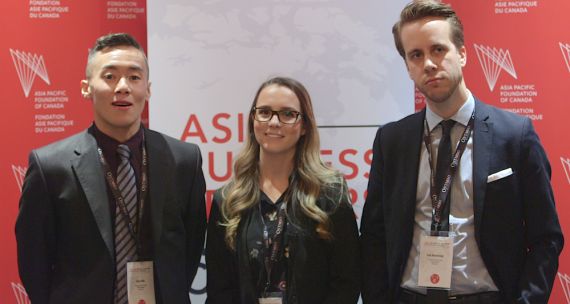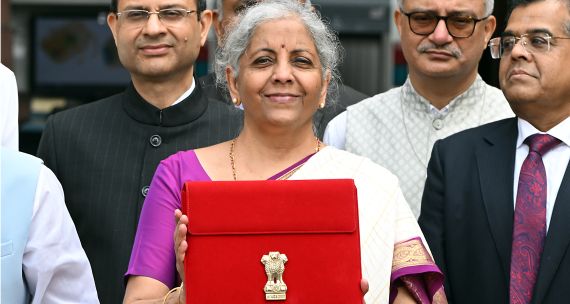Canadian millennials are the drivers of tomorrow and will represent the largest voting bloc in the Canadian 2019 federal election. Already, millennials as a cohort dominate the Canadian workforce, and this generational shift coincides with important strategic developments. As shifts in Canada’s global status and a renewed attention to Asia Pacific engagement continue, 2018 is shaping up to be a pivotal year for Canada as it seeks to broaden and build more transpacific partnerships. And as the Asia Pacific Foundation of Canada's own 2017 National Opinion Poll: Canadian Millennial Views on Asia revealed, Canadian millennials (aged 18-34) are more positive about Asia in general and more engaged with the region through work, travel, language, and social networks than any generation before them.
But what is standing in Canada’s way as our country attempts to better diversify and engage with the Asia Pacific region? As a recent meeting of some of Canada and Asia’s most influential business leaders revealed, the simple question has a not-so-simple answer. And from the vantage point of the younger generation, it is essential that we have a voice in shaping any engagement strategy with Asia that affects Canada’s future prosperity.
On March 2nd, business leaders from Canada and Asia convened in Toronto, Ontario for the third annual Asia Business Leaders Advisory Council meeting (ABLAC 2018). Sponsored by the Government of Ontario and Export Development Canada, the summit featured representatives from the private sector, government, academia, as well as youth voices. The presence of 24 business leaders from Asia and Canada as well as two federal ministers set the stage for a series of important discussions.
In summary, experiences from ABLAC 2018 point to three important takeaways concerning the Canada-Asia relationship:
1. Building Canada’s Visibility in Creative Sectors
In Asia, Canada is widely regarded as a safe and stable country with a positive image. However, in terms of Canada’s Asia strategy, the message was clear: Canada needs to be where the action is.
Video: Mark Machin, President and CEO, CPPIB
Part of a successful Asia-engagement strategy is to present a united ‘Brand Canada’ when abroad, but also to identify high-growth countries and sectors in which Canada can better participate. Several potential sectors were discussed, including: film, education, clean tech, health care, artificial intelligence, and e-commerce. Canada must refine its focus on these sectors with a strategic plan for scaling-up for Asia and the global market.
For youth, another takeaway from these meetings was the need to encourage more Canada-Asia student exchanges in these target sectors to create additional opportunities on the ground on both sides of the Pacific. Part of branding Canada abroad is the ability to better understand our potential partners. Youth can play an important role in developing a more in-depth understanding of overseas markets by partnering with local institutions and businesses through co-op and exchange programs to foster the long-term, people-to-people relationships that Canada needs to build a coherent brand strategy, while encouraging work, travel and study in the region.
Video: Lan Kang, Senior Vice-President, Fosun International Ltd.
2. Canada’s Capacity for Innovation Development
The day continued with speeches from key ministers in our federal government discussing the need for more innovation. The Hon. Navdeep Bains, Minister of Innovation, Science and Economic Development, explained that Canada must think beyond trade and investment to build new opportunities and partnership through innovation hubs and by tapping into the growth of developing smart cities – urban areas that use communications technologies to manage their infrastructure. Canada has a role to play in developing new technologies and building accelerators and incubators that support these ecosystems, with a goal of scaling up our products and talents for a global market.
The Hon. Bill Morneau, Minister of Finance, further added that the voices of youth and women, as well as interdisciplinary approaches, must be included in the Asia Pacific’s rapidly growing ecosystems. Our relationship with Asia should also not be purely transactional, he said, adding that while necessary, it is not a sufficient for the long-term goal of creating stronger people-to-people ties between Canada and Asia.
In a follow-up millennial-focused interview, Minister Morneau also noted that both the drive and optimism that youth possess needs to be coupled with necessary building block skills that will help the younger generation succeed abroad. This includes more people-to-people exchanges to create a better understanding of local environments, as well as educational exchanges that can generate more cross-cultural understanding. From a younger generation’s perspective, some of the skills needed to succeed in conducting business in Asia may include better training of different Asian business practices as well as a better understanding of the legal and regulatory environments of these different economies.
Video: Hon. Bill Morneau, Minister of Finance
3. Canadian Youth and Our Relationship with Asia
Across the board, millennials in both Canada and Asia were acknowledged at ABLAC 2018 as the drivers of growth for the future, as was the need for continuous cross-generational dialogue. As millennials increasingly occupy a growing demographic around the world, they are also becoming an increasingly important group vis-à-vis their economic and political clout. This is especially true in large countries, such as China and India, where the sheer size of the millennial population is already having a global impact, but also here at home in Canada, where the millennial cohort is becoming an important strategic voting bloc.
Time spent speaking to some of the youth delegates at ABLAC 2018 helped expand on how current and future business leaders can collaborate on future projects. One of the main messages that came across was the desire for youth to be consulted in discussions by government, policy-makers and the private-sector in the decisions-of-tomorrow. With many important issues, such as trade deals, greatly impacting the future of young Canadians, consultations are critical given the economic impact they may have.
Youth also expressed a desire to cultivate cross-cultural competencies and the entrepreneurial skills to further explore destinations abroad. This means more opportunities for language acquisition, more educational resources on Asia, and the opportunity for long-term exchanges and co-ops throughout the region. From all sides, it was agreed that youth must be further encouraged to travel and study abroad in the Asia Pacific region in order to create the first-hand international experience that expands knowledge networks and connections that will allow Canadians to grasp international issues from a diversity of perspectives.
Video: Canada-China Young Professionals Network executive Christine Martel-Fleming, Yany Siek (L), Erik Bainbridge (R)
What’s Next for Canada?
ABLAC members are now poised to help take the Canada-Asia relationship to the next stage of development. For our government, ABLAC recommendations have the potential to create new opportunities for more international partnerships, exchanges, and employment. As Canada continues to identify and capitalize on priority sectors, it is also vital that we invest in Asia competence for our Canadian youth and equip them with the skills to succeed in the Asia Pacific and beyond. We need a more robust cohort of emerging Asia experts, and that will mean creating a stronger infrastructure for youth to develop the types of knowledge and capacities needed for successful branding in Asia, smart city co-operation, and creating leadership on trade deals. Such goals ensure that we cultivate and train the next generation of business leaders to carry the torch, and to lead the Asia Business Leader Advisory Council of the future.




